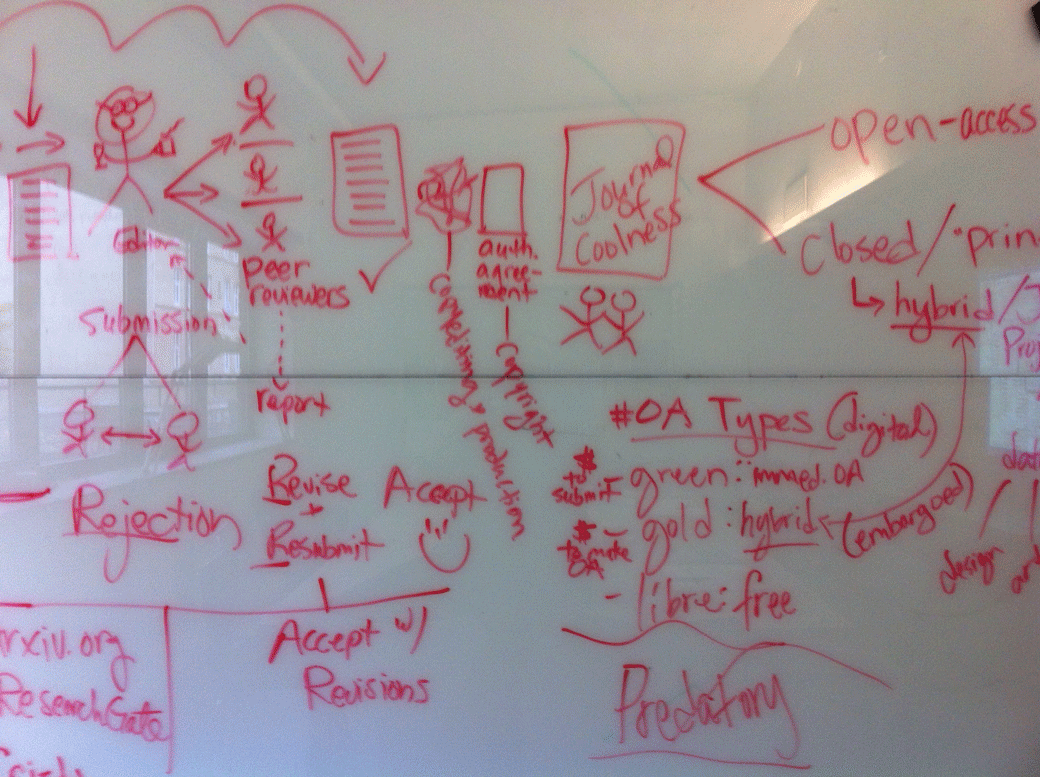Apparatus - reading (7 ECTS)
During the second and third semester of the PhD Programme, we look at the Apparatus that surrounds formalized research in terms of validating research as research (systems of authority including referencing and peer review); structuring research (in terms of research questions, activities and what is produced), mediating research (in terms of activities, what is produced and telling people about this) and research design (all the above working together to project aims and effects in the future). We do this through a series of workshop/seminars held by PhD fellows, Tim Anstey and Ingrid Halland from AHO and with other guests and members of AHO staff. Together these activities constitute the Apparatus course (30 ECST). The course is assessed through development and submission of an annotated bibliography and through the definition of a literature review in the first part of the course, and though the development of a research design proposal in the second part of the course.
Aims
The “Apparatus: literature/state of the art/research design” course consists of acknowledging, understanding, and demonstrating an ability to deal with the formalized processes, procedures, and genres that surround higher research and defines project-based activities as research within an academic context. This includes the creation of literature/source lists defining project scope and research questions (bibliography), systems that build authority in academic texts (referencing, peer review, and negotiations of writing/publishing for disciplinary audiences), systems that ensure methodological integrity (ethical standards for research practices and writing up data collection). The “Reading” course is offered from (October-April) each year and should be taken in the first and second semester of the PhD.
Course content
Teaching occurs in five mandatory workshops, each with a specific theme:
Workshop 1: Building authority in academic writing
Workshop 2: Situating Research as a contribution to the field
Workshop 3: Forms of mediation
Workshop 4: Literature review: fields and methods
Workshop 5: Literature review and research design
Compulsory assignments
Reading list (archive)
Annotated bibliography (text)
Format analysis (seminar presentation)
Literature review (text)
Reflection on research design (seminar presentation)
To pass this course, you must: Attend 100% of the workshops, turn in all assignments on time, and pass assessment of defined deliverables. All participants are expected to actively participate in discussions which are part of the course.
Learning Outcomes
At the end of the course, the PhD Candidate:
can identify key texts, concepts, researchers, publication venues, and citation styles in their discipline.
understands how literature reviews and environmental scans can position the arguments of the proposed PhD topic within a disciplinary field.
understands the impact of their thesis format choices (monograph or compilation) in terms of genre expectations, timelines, audiences, and deliverables.
engages in a recursive writing and revision process for academic, research-based writing
can evaluate strengths and limitations of adequate research designs in their own research endeavours, and to actively assess the design choices, and their implications, in research conducted by peers.
can develop, adapt, and implement research methodologies to extend and redefine existing knowledge or professional practice.

